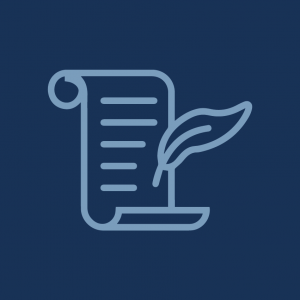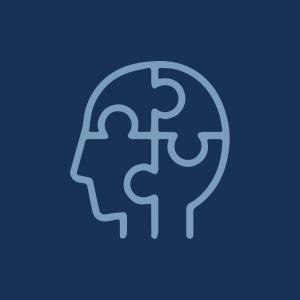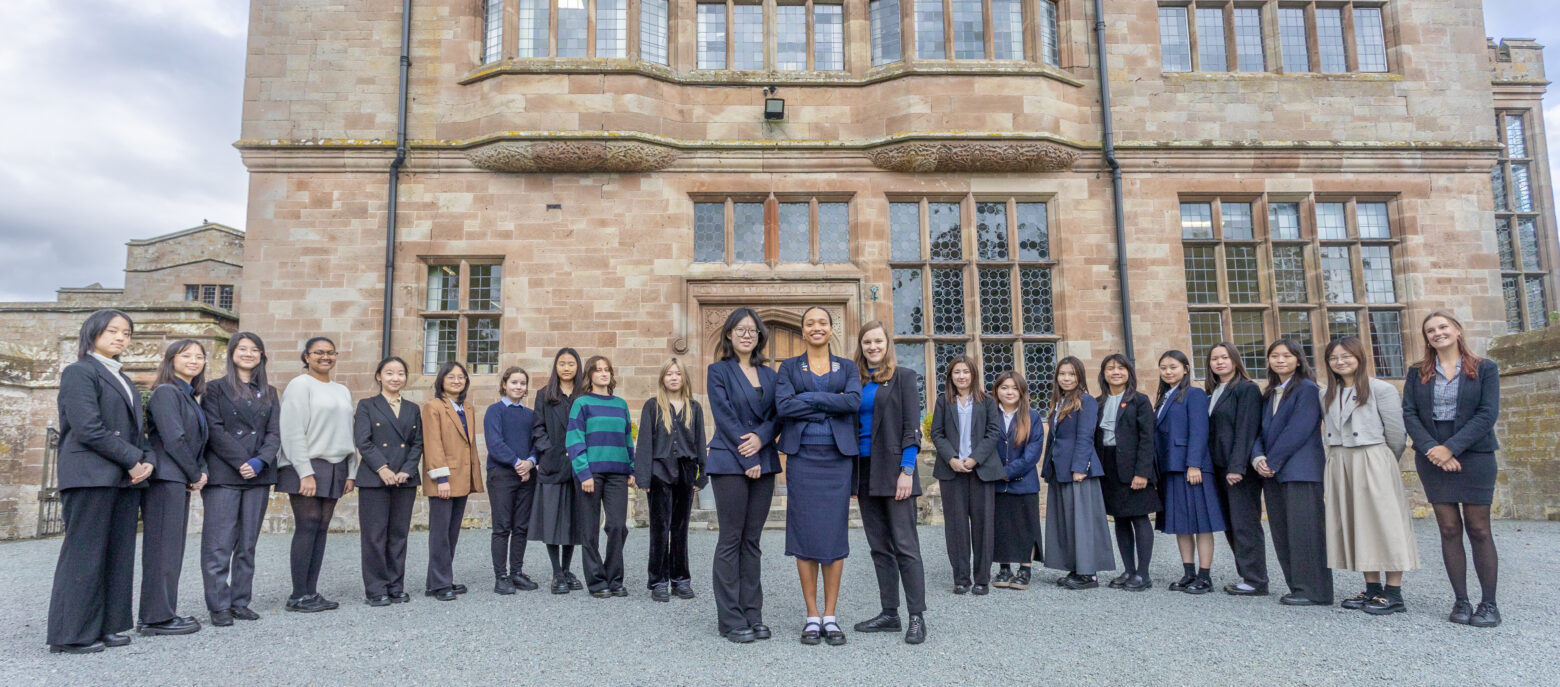The curriculum in Years 12 and 13 has two parts; core and optional subjects.
Sixth Form Curriculum

Art, Craft & Design
Taking A Level Art means that you are joining a popular course which has a track record of outstanding results. You will have the opportunity to experiment and develop your artistic abilities, learn new practical skills and processes, and work on an ambitious scale. This two-year course should appeal to students wanting to extend their expertise in the visual Arts from GCSE level. The course will be tailored to suit each candidate according to former experience. Familiarisation of basic skills and shared projects will help everyone to tackle the challenges of new work programmes which will include gallery visits and specialist workshops. Painting, drawing, sculpture and printmaking are just a few of the areas that can be explored through programmes designed to offer opportunities to develop imaginative personal expression. Themed topics will allow studies to grow using the experience of analytical thought and problem solving. Reference to other styles, genres and context should be recorded and evaluated through a sketchbook.
- Optional Subject
- A Level Photography can be offered as an alternative to Art, Craft & Design.

Art & Design: Textiles
This A Level course introduces the students to a variety of creative experiences by exploring a range of textile media and techniques. Students are required to work in one or more areas of textiles. These include fashion design and textile/ costume design, digital textiles, constructed textiles or art textiles, installed textiles, printed or dyed fabrics, domestic textiles, wallpaper and interior design and /or fashion. By the end of the course students will be able to demonstrate skills gained and use them to produce exciting and skilled pieces of textile design/artwork. New and exciting textile techniques and processes will be explored. Trips and workshop opportunities will be arranged to underpin and stimulate project themes.
- Optional Subject

Biology
Biology A Level will give you the skills to make connections and associations with all living things around you. Biology literally means the study of life and if that’s not important, what is? Being such a broad topic, you’re bound to find a specific area of interest, plus it opens the door to a fantastic range of interesting careers.
- Optional Subject

Business
The specification focuses on different types of organisations in various business sectors and environments. We examine how businesses function domestically and globally. All types of business ownership are studied to understand how scale and size of organisations affect decisions they make.
- Optional Subject

Chemistry
A Level Chemistry attempts to answer the big question ‘what is the world made of?’ and it’s the search for this answer that makes this subject so fascinating. From investigating how one substance can be changed drastically into another, to researching a new wonder drug to save millions of lives, the opportunities that chemistry provides are endless.
- Optional Subject

CMI
Girls in Year 12 can study for a CMI qualification in the Principles of Management and Leadership.
Developing and enabling brilliant leaders, this training will give them the management skills they need to unlock their potential. Adcote School is the only school in Shropshire to offer this award. We believe passionately that our pupils are the next generation of Women Leaders and will address the balance of women in management positions across the workforce. To give our Sixth Form pupils a head start and an advantage when they leave Adcote School, through a partnership with the Chartered Management Institute, all our Year 12 students will complete a Level 3 Certificate in Management and Leadership in addition to their A level studies. We believe this is a very important initiative for our students which will not only prove objectively that they have indeed mastered the skills that businesses and organisations are interested in, but will also be a powerful addition to their CV. Whilst many universities offer this course, we are the only sixth form in the county to be offering this to Sixth Form students. The qualification will provide strong evidence to university admission tutors and corporate employers that our young women are far more capable than they are often credited to be.
- Optional Subject at Year 12, not offered at Year 13

Economics
A Level Economics is structured around four themes assessed by three external exams. Students begin by considering how core microeconomic and macroeconomic concepts (demand and supply, resource scarcity, etc.) are applied in everyday life. Using these concepts, you will investigate the causes and effects of inflation, unemployment, globalisation, poverty, etc. along with the negative ways that economic activity can impact on the environment (and the ways in which these can be lessened). Breadth and depth of knowledge and understanding of more complex concepts and models are developed in year 13. In both years, students develop an awareness of current economic events and government policies. Learning involves games, quizzes, etc. to help build basic subject knowledge plus in-class assessments, real-life case studies, private research and discussions to develop a deeper understanding and strong exam technique. Private study of at least four hours per week is expected, this increasing in year 13.
- Optional Subject

English Literature
We study Aspects of Comedy, Elements of Crime Writing, as well as theory and independence.
In Aspects of Comedy, All texts contain a love interest for the protagonist and marriage is a focal point. In all cases society itself (as represented in the texts), and the behaviour of men and women in it, are ridiculed. We examine a variety of elements such as; the significance of human folly, trickery and gullibility.
In Elements of Crime Writing, all set texts focus on transgressions against established order and the specific breaking of either national, social, religious or moral laws.
We examine a variety of elements such as; the type of the crime text itself, whether it is detective fiction, a postmodern novel, a revenge tragedy, an account of a life lost to crime.
Theory and independence is designed to allow students to read widely, to choose their own texts (if appropriate) and to apply to different theoretical and critical methods can be applied to the subject. We examine theories such as; narrative, feminist, Marxist, eco-critical, post-colonial, as well as the canon.
- Optional Subject

Extended Project Qualification
The Extended Project Qualification is a wonderful opportunity for students, where they can create a research based project based on a passionate interest of their own choosing, or a deeper investigation into an aspect of one of their A Level subjects. The project is a Level 3 qualification and carries UCAS points, each grade is worth half the full A Level points.
- Optional Subject

Further Mathematics
Further Mathematic is designed for students who wish to study beyond an A Level in Mathematics, and provides a solid foundation for progression into further study particularly in mathematics, engineering, computer science, the sciences and economics. If you wish to study Further Mathematics then you will have achieved at least grade 7, preferably grade 8 or 9 at GCSE Mathematics.
- Optional Subject

Geography
A Level Geography is all about getting a better understanding of how the world we live in works. It’s a great general subject to take, giving you a background to key issues of today related to the environment and sustainability, poverty, the economic state of the world, the relationship between politics and current social and economic challenges. Whatever you do in the future this understanding will be useful. Society, economy and the environment need more people with a robust and critical understanding of how the world works – so that we can change it whatever we do!
- Optional Subject

History
History is a very popular and highly regarded subject, going well with a wide range of other subjects, enabling students to add breadth to their Sixth Form studies. It is an extremely interesting course enabling you to develop your knowledge on a wide range of topics. The skills developed in A Level History can be transferred to other subjects such as English Literature, Psychology and Sociology. History is an excellent subject to study for A Level to keep your options open when choosing a degree and is beneficial to a wide range of careers.
- Optional Subject

Mathematics
Mathematics is full of beauty and elegance. Mathematical patterns are everywhere from the seeds in a sunflower to the spots on a dog. In Advanced Mathematics you will begin to learn the powerful techniques that allow you to model and understand a wide variety of natural and man-made processes. The Pure Mathematics strands will build on your GCSE work to develop the necessary foundation skills, and the Applied Mathematics strands look at a wide variety of applications. In addition to enjoying maths and wanting to do the subject, you will be expected to have achieved at least a grade 7 in your GCSE, at Higher Level.
- Optional Subject

Music
A Level Music is an academic A Level aimed at girls who have studied music at GCSE and want to develop their skills and understanding further. They should have a performance standard of at least Grade 4/5 at the beginning of the Lower Sixth course. The course is supported by regular opportunities to perform in ensembles and as a soloist and participate in concerts.
Outside of lessons, students have a wide range of choirs and ensembles to choose from. Visit our School Life pages for further details.
- Optional Subject

Drama
This is a vocational course, designed for learners who want to specialise in Performing Arts as their career path, or those who want to explore Performance and Theatre in order to gain a greater understanding of the sector whilst developing skills in Acting, Producing and Directing. The programme is taken over two academic years. It is recommended that learners have a grade 4/ grade C or above in Maths and English GCSEs and have some previous performance experience.
- Optional Subject

PHSE
Our Personal, Social, Health and Economic Education (PSHE) programme helps pupils to lead confident, healthy and responsible lives as individuals and members of society. Through work in lesson time and a wide range of activities across and beyond the curriculum, pupils gain practical knowledge and skills to help them live healthily and deal with the spiritual, moral, social and cultural issues they face as they approach adulthood. PSHE gives pupils opportunities to reflect on their experiences and how they are developing. It helps them to understand and manage responsibly a wider range of relationships as they mature, and to show respect for the diversity of, and differences between, people. It also develops pupils’ well-being and self-esteem, encouraging belief in their ability to succeed and enabling them to take responsibility for their learning and future choice of courses and careers.
Our PSHE programme is age and developmentally appropriate with respect to the backgrounds and beliefs of pupils and parents. The PSHE programme helps in giving them the knowledge, skills and understanding to lead confident, healthy, independent lives and become informed, active and responsible citizens in the community.
- Core Subject

Physics
Physicists explore the fundamental nature of almost everything we know of. They probe the furthest reaches of the earth to study the smallest pieces of matter. Join them to enter a world deep beneath the surface of normal human experience.
- Optional Subject

Psychology
Psychology represents our efforts to understand the thinking and behaviour of human beings. A Level Psychology provides an introduction to this complex and diverse field of enquiry across a range of areas. The course develops students’ ability to understand, apply, and criticise scientific research within a range of cultures and populations. Furthermore, it will develop a critical awareness of the strengths and shortcomings of different methods of scientific investigation, and how findings are interpreted and presented within this ever-progressing field.

Spanish
This is an advanced level course in Spanish, so you will be expected to have already undertaken some study of the language you have chosen. Most students who take this course will have a GCSE or an equivalent qualification. You will be interested in different cultures and keen to use a different language to understand and to communicate your own ideas and opinions to others on different topics and issues. You will enjoy reading, speaking, writing and listening.
- Optional Subject (Subject to conditions, please enquire with our admissions office)

Physical Education
This qualification is designed to support progression to higher education. More specifically, the course will provide a broad basis of study for the sport sector. It is not a requirement that you should have studied Physical Education at GCSE level in order to study A Level in Physical Education. Several topics covered in the course are developments of work covered at GCSE level but others are new. What is important is that you should have a lively and enquiring mind, an interest in sport, a willingness to explore new ideas and an ability to communicate your ideas effectively. Unless you select to complete Unit 7, you are not assessed on your practical performance, whereas to achieve a good grade in A Level PE you need to be currently competing at county standard or above.
- A Level Optional Subject

Travel & Tourism
Travel and tourism (Level 1/2) can help you take your first steps towards a career in retail or business travel. You’ll learn essential skills such as business awareness, customer service and understanding destinations in the UK and worldwide. Units offered include the development of UK tourism, international holiday destinations and factors affecting travel and tourism worldwide.
- Optional Subject
Please note: this is not equivalent to an A Level.



























